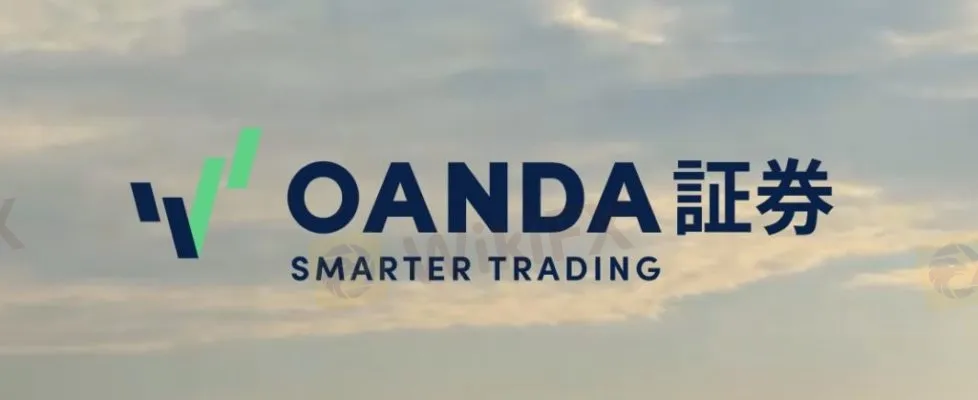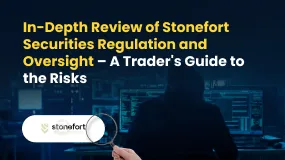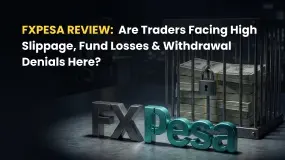简体中文
繁體中文
English
Pусский
日本語
ภาษาไทย
Tiếng Việt
Bahasa Indonesia
Español
हिन्दी
Filippiiniläinen
Français
Deutsch
Português
Türkçe
한국어
العربية
OANDA Japan Increases Margin Rate for AUD/JPY Trading Pair
Abstract:OANDA Japan has increased the margin rate for AUD/JPY currency pair, cautioning traders to deposit more capital to maintain open positions or decrease them to prevent losses. OANDA has also instituted a maximum open interest to limit risk exposure.

In a significant move, OANDA Securities, the Japanese branch of renowned online broker, OANDA Corporation, has declared a change in its trading terms for the AUD/JPY currency pair. The margin rate will increase from 2% to 3% as a result of this modification, as stated on the corporate website. At the start of trade on May 15, 2023, this revised term is supposed to take effect.
The margin requirement, a vital component in forex trading, is essentially the minimum amount a trader needs to maintain an open position in a particular currency pair. An increase in the margin requirement, as is the case here, implies that traders will need to deposit more capital to maintain open positions in the AUD/JPY pair. The revision will apply to both business accounts on the Tokyo and NY servers.
OANDA Japan has issued a cautionary note to its customers who have open positions in the AUD/JPY pair. The company has stated that if these traders continue to hold their positions beyond the market closure on May 13, 2023, they could potentially face a margin call. When the value of the account drops below the required maintenance margin, a broker will often demand that the investor deposit more cash or securities into their account. This is known as a margin call. To make sure that the trader's losses don't go above the capital in their account, this is done.

In order to prevent this from happening, OANDA Japan encourages its traders to either decrease their open positions in advance or make sure they have enough money in their accounts to fulfill the increased margin requirements. This is an essential risk management strategy to prevent losses that could potentially exceed their deposits.
This recent development comes on the heels of another significant change that OANDA Japan introduced a month earlier. From the start of trading on April 3, 2023, the company instituted a maximum open interest for all currency pairs. In addition to this, there were alterations in the maximum open interest for specific stock index CFDs and commodity CFDs.
The term 'open interest' in trading refers to the total number of outstanding derivative contracts, such as options or futures that have not been settled. By introducing a maximum open interest, OANDA Japan aims to limit the risk exposure of its clients and maintain the stability of its trading platform.
About Oanda Japan
Established in 1996, OANDA has a robust track record of offering international trading services. As part of its worldwide operations, OANDA Japan extends a diverse range of trading services to its local clientele.

The Financial Services Agency (FSA) of Japan meticulously regulates the activities of OANDA Japan. The FSA is the premier government body charged with the mission to uphold the stability of Japan's financial system, a responsibility that includes overseeing the banking, securities, exchange, and insurance sectors. As per this regulatory oversight, OANDA Japan is obligated to meet the rigorous financial standards set forth by the FSA. These requirements include maintaining an adequate level of capital and complying with several regulations designed for consumer protection.
Download and install the WikiFX App on your smartphone to stay updated on the latest news.
Download the App here: https://social1.onelink.me/QgET/px2b7i8n

Disclaimer:
The views in this article only represent the author's personal views, and do not constitute investment advice on this platform. This platform does not guarantee the accuracy, completeness and timeliness of the information in the article, and will not be liable for any loss caused by the use of or reliance on the information in the article.
Read more

In-Depth Uniglobe Markets Commission Fees and Spreads Analysis – What Traders Should Really Know
For experienced traders, the cost of execution is a critical factor in broker selection. Low spreads, fair commissions, and transparent pricing can be the difference between a profitable and a losing strategy over the long term. This has led many to scrutinize the offerings of brokers like Uniglobe Markets, which presents a tiered account structure promising competitive conditions. However, a professional evaluation demands more than a surface-level look at marketing claims. It requires a deep, data-driven analysis of the real trading costs, set against the backdrop of the broker's operational integrity and safety. This comprehensive Uniglobe Markets commission fees and spreads analysis will deconstruct the broker's pricing model, examining its account types, typical spreads, commission policies, and potential ancillary costs. Using data primarily sourced from the global broker inquiry platform WikiFX, we will provide a clear-eyed view of the Uniglobe Markets spreads commissions prici

In-Depth Review of Stonefort Securities Regulation and Oversight – A Trader's Guide to the Risks
For experienced traders, the process of selecting a new broker transcends a simple comparison of spreads and leverage. It is a meticulous due diligence exercise where the integrity of the broker's regulatory framework is paramount. Stonefort Securities, a relatively new entrant in the crowded brokerage space, presents a complex and often contradictory profile. On one hand, it boasts a modern MT5 platform and a stream of positive user testimonials. On the other hand, it is shadowed by severe regulatory warnings that question the very foundation of its operations. This in-depth review focuses on the core issue for any long-term trader: Stonefort Securities regulation and oversight. We will dissect the broker's corporate structure, scrutinize its licensing claims, and analyze what the data implies for trader protection and fund security. For traders evaluating whether Stonefort Securities is a trustworthy partner, understanding these details is not just important—it is essential.

FXPesa Review: Are Traders Facing High Slippage, Fund Losses & Withdrawal Denials?
Do FXPesa support officials fail to pick up your calls when you raise fund withdrawal requests with the broker? But are these officials always open to you regarding fund deposits? Do you frequently spot slippage and stop-loss order execution errors on the FXPesa login? These issues are increasingly becoming common with this forex broker. Consequently, many traders have expressed their dissatisfaction with the broker online. In this FXPesa Review article, we have shared some of these complaints. Take a look!

Trive Investigation: High Score, Hidden Risk - The Profit Paradox
A disturbing pattern has emerged regarding the broker Trive. Despite holding a high WikiFX score (7.91) and valid licenses in South Africa and Australia, recent investor reports suggest a significant disconnect between the platform's reputation and its treatment of profitable clients. While the regulatory paperwork appears in order, our data indicates that traders are facing sudden account freezes and accusations of "trading abuse" precisely when they attempt to withdraw profits. This report investigates why a seemingly "safe" broker is generating high-risk complaints.
WikiFX Broker
Latest News
WikiFX's New Evaluation of ATM Capital LTD: Does its License Protect the Arab Investor?
How a Fake Moomoo Ad Led to the “New Dream Voyage 5” Scam
Is Axi Legit? A Data-Driven Analysis of Its Regulatory Standing and Trader Feedback
FXPesa Review: Are Traders Facing High Slippage, Fund Losses & Withdrawal Denials?
Trive Investigation: High Score, Hidden Risk - The Profit Paradox
In-Depth Uniglobe Markets Commission Fees and Spreads Analysis – What Traders Should Really Know
Bessent believes there won't be a recession in 2026 but says some sectors are challenged
Is GGCC Legit? A Data-Driven Analysis for Experienced Traders
Young Singaporean Trader Grew USD 52 into a USD 107,700 Portfolio
In-Depth Review of INZO Trading Conditions and Product Offering – A Data-Driven Analysis
Currency Calculator




